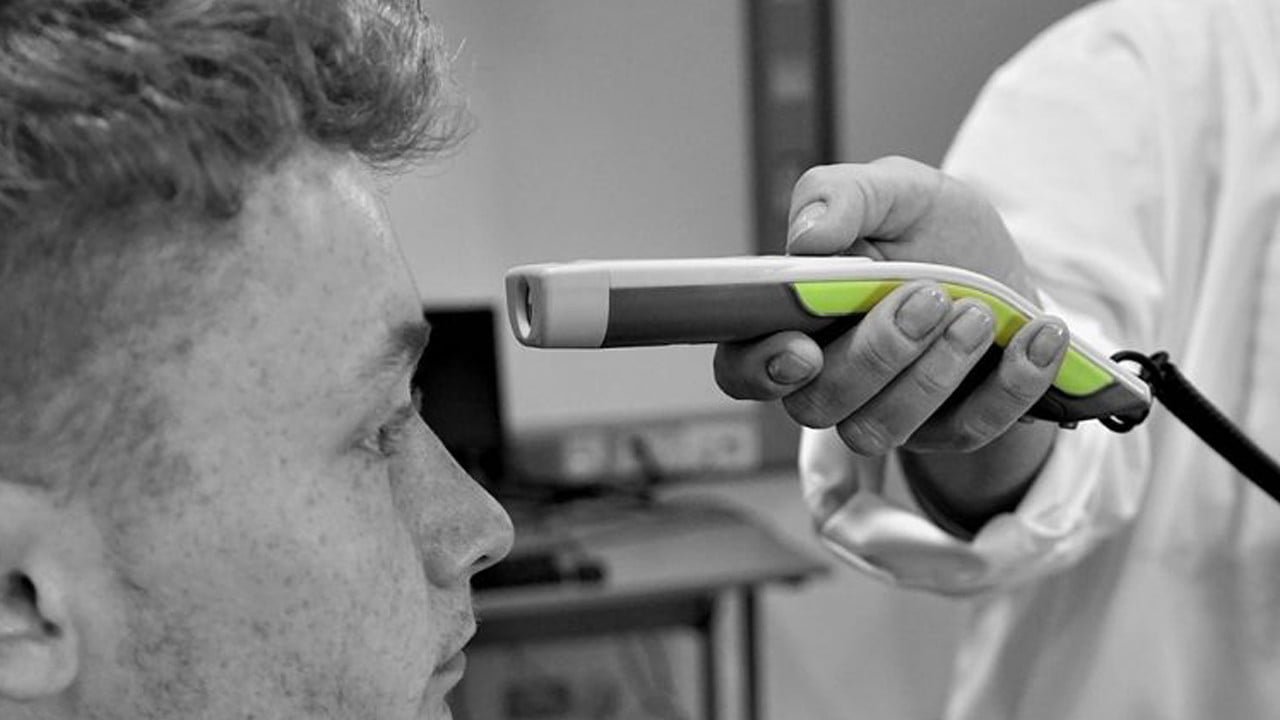Widely Used Across The World
Hospitals widely use medical thermometers to gain an accurate reading of a patient’s core body temperature. An elevated reading is a sign of infection or illness and is a key diagnostic for Healthcare Professionals when assessing patients.
As body temperature is such an important vital sign, hospitals need the most accurate Medical-Grade non-contact thermometers to take the reading. Let’s take a look at the options available to hospitals.
Traditional Medical Thermometers
Thermoscopes, comprising air trapped in a glass tube, were used in clinical medicine from the 16th century, before being replaced by mercury thermometers when Daniel Gabriel Fahrenheit invented them in 1714. These were commonly used in medical practice up until fairly recently when there were concerns about toxicity.
Digital Thermometers
Digital thermometers have provided a more accurate reading for healthcare practitioners, but they are often considered invasive for patients.
Options for physically taking someone’s temperature include:
• Oral (in the mouth)
• Rectal (in the rectum)
• Axilla (under the armpit)
• Tympanic (in the ear)
As these hospital thermometers make physical contact with the patient, there’s a high chance of contamination from bodily fluids and therefore single-use plastic probe covers are used to eliminate this risk. These plastic covers produce an incredible volume of medical waste which is detrimental to the environment. In fact, a 800-bed hospital can use in the region of 2-3million probe covers per year1.
Contactless medical grade thermometers
Contactless medical grade thermometers have been developed which are both more sustainable and do not require contact with the patient’s skin. Hospital thermometers such as TRITEMP™ use sophisticated TAP&TAKE technology, meaning that the healthcare professional simply aims the device at the patient’s forehead, and receives an accurate core body temperature reading in seconds.
It’s important to note that COVID-19 has created a wave of cheap and inaccurate non-contact thermometers designed for screening purposes, which is why it’s essential that hospitals only opt for medical graded devices such as TRITEMP™. This is a precision engineered device, CE marked and manufactured in Europe by TriMedika. It offers a high degree of accuracy to +/- 0.2°C. Healthcare professionals can be confident about the accuracy of the thermometer, allowing them to make the best decisions about a patient in their care.
Medical grade Non-Contact Thermometers can save hospitals money
In older digital contact thermometers a disposable plastic cover has to be replaced over the probe every time a temperature reading is taken. As the thermometer makes contact, a cover is necessary to protect the patient against infection; but apart from increasing plastic usage, it’s also expensive, because each cover costs four cents / 3 pence.
Non-contact thermometers such as TRITEMP™ can save hospitals money in comparison to contact devices. Additionally, breakage rates for cheaper contact thermometers are significant. TRITEMP™ is effective for up to 40,000 measurements and comes with a two-year warranty. TRITEMP™ is calibrated at source.
If your hospital or healthcare setting hasn’t yet made the switch to a non-contact thermometer, then now is the time. Improve patient care, reduce costs and plastic waste by switching to TRITEMP™ thermometer.
Non-contact digital thermometers are better for patients and clinicians
Non-contact digital thermometers such as TRITEMP™, are better for patients because they are less disruptive and remove the risk of infection. They are also more efficient, economic and sustainable.
To take the temperature, you simply point at a patient’s forehead and click. They can have their temperature taken while they are asleep, for example. As 80% of hospital infections are passed through contact, it improves the infection control. Plus, it’s time saving for clinicians and more sustainable because no plastic consumables are needed.
FAQ’s
How do Healthcare Practitioners use TRITEMP™ Thermometer?
TRITEMP™ non-contact forehead thermometers use infrared technology that travels in a straight line from the device to the patient’s forehead.
Why do Healthcare Teams Rely so Heavily on Thermometers?
During the pandemic, it has been established that a raised body temperature is one of the main indicators that a person may have acquired COVID-19. As a medical grade device, TRITEMP™ thermometers ensure quick and accurate temperature readings without coming into physical contact with the patient.
Are Non-Contact Thermometers Only Used In Hospitals?
TRITEMP™ thermometers are an essential piece of equipment in hospitals but they can be used in a wider range of medical settings, including dentists, care homes and doctor surgeries. They are also useful in non-healthcare locations such as office buildings, schools, football stadiums or anywhere else that requires people to have their temperature taken. During the pandemic, businesses and educational settings have relied on temperature-taking as a way to prevent the spread of COVID-19.
As a medical grade device, you can be assured of an accurate core body temperature reading with a precision rate of +/-0.2°C.
Discover more about Trimedika:
TriMedika are an innovative medical technology company that provides the most accurate clinical devices for hospitals worldwide. We look healthcare challenges in the eye and make a promise to protect people and planet through meaningful technology.
They are inspired by their own first-hand experience of the challenges of healthcare. By asking the right questions, and applying fresh thinking in science and technology, they solve simple but critical, everyday problems. Trimedika unlocks the full potential of staff and specialists and give them back time to do what they do best – care.

